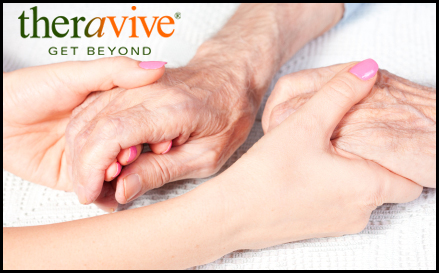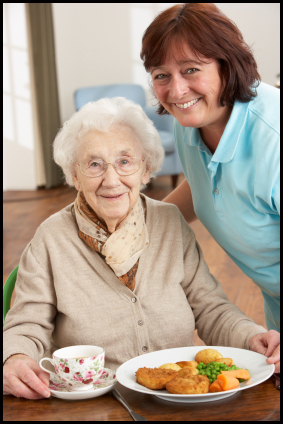 Caregivers, going above and beyond.
Caregivers, going above and beyond.
There are an estimated 90 million family caregivers in America in 2013, according to the Caregiver Action Network. The agency also reports that 36% of young adults ages 18-29 are family caregivers. This includes approximately one million who care for someone with Alzheimer’s Disease.
It is estimated that family caregivers for the elderly and disabled save over $450 billion annually in unpaid services to our most vulnerable population. Imagine what it would do to our health care system to provide those services!
Family caregiving is not only for the elderly and disabled. Let’s not forget parents who spend countless hours caring for their children while juggling their own lives, work (for most) and aging parents (for many).
A Day in the Life of an Everyday Hero
I have the honor of knowing many caregivers whose loved ones have multiple sclerosis, a neurological and autoimmune disease that can be debilitating for those with the more progressive type. This is a synopsis of what an ordinary day might look like for any one of them.
6:00 – Arise early to help get their loved one up, cleaned and dressed.
6:30 – Get showered and dressed for work.
7:00 – Prepare food for everyone for the day.
7:30 – Make sure everyone eats
7:50 – Put out medications for the day.
8:00 – Get loved one settled in for the day.
8:15 – Commute to work.
8:30 – 5:00 – Work all day (where they check on their loved one periodically).
(Some go home at lunch to help with transfers, toileting, feeding, etc.)
(Back to work.)
5:00 – Commute from work.
5:45 – Prepare dinner.
6:30 – Make sure everyone eats.
7:15 – Clean up after dinner.
8:00 – Help loved one get ready for bed.
8:30 – Give out medication.
8:45 – Prepare for the upcoming day.
9:30 – Fall into bed exhausted.
Your day might look similar to this (especially if you are a parent), minus the stress involved in being responsible for the well being of someone who is unable to care for him/herself. Most of us have the opportunity for some downtime in the evening to recover. We often take for granted the ability to go out after work for a leisurely dinner, or some routine self-care as mundane as getting a haircut or buying shoes. Consider this – some people are taking care of children and an aging parent in a separate home.
Many of the caregivers I know rarely vary their routines. Even a slight change in plans may require arranging for a neighbor, sitter or friend to fill-in. The stress of that kind of responsibility can be very overwhelming.
 Compassion Fatigue and Caregiver Burnout
Compassion Fatigue and Caregiver Burnout
Living the life of an everyday hero can take a toll over time. Those who do not get relief from the stress and exhaustion are at risk for compassion fatigue. Compassion fatigue is described by the Compassion Fatigue Awareness Project as symptoms of chronic stress that may become evident in the lives of those who provide care to others. This can result in emotional and physical indicators for those who put their own self care and well being on hold as they care for others. Some of the symptoms include:
- Exhaustion – physical and emotional
- Poor self-care, including hygiene and appearance
- Stuffing emotions – resulting in hostility, sadness, irritability
- Problems concentrating
- Poor diet and lack of exercise
- Feeling taken advantage of or taken for granted – not appreciated – resulting in resentment
- Isolated
- Apathy
- Substance abuse – drinking regularly, taking medication to cope with stress
- Sleep disturbance – resulting in daytime fatigue and sleep deprivation
- Lowered resistance to colds, flu, etc.
Left unchecked these symptoms may result in caregiver burnout. Like other forms of burnout, caregiver burnout requires action to recover. What is most critical about caregiver burnout is that it places both the caregiver and the person who is being cared for at risk of neglect and/or abuse.
Most abuse and neglect happens because of inadequate coping skills. In general, people who abuse or neglect their loved ones (or kids) do not set out with the intention to do so. More likely, their coping ability is overwhelmed. They are frequently tired and easily frustrated. It may begin by being too rough or yelling, and escalate into something they would not choose to do under better circumstances.
Protect Yourself and Your Loved One
1. Ask for and accept help – friends, neighbors, relatives, volunteers, churches/synagogues, social services agencies, home health care and others are often willing to help if you let them know. Choose one thing they can do and let it go – let them help you. Whether that is bringing in one meal each week, sitting with your loved one while you go out for the evening or afternoon or simply visit you on a weekend – every little thing helps. It breaks the isolation and may give you some time to just be. Build a support network and rely on them.
2. Set boundaries – those who are natural givers often set themselves up for burnout and overwhelm. Be smart about your limitations and offer only what you have to give. If you find you are showing signs of compassion fatigue, let someone know. Call your area agency on aging, organizations in your area that provide support and resources – start with United Way Information and Referral (211 in larger areas) and ask navigator for local resources. If you don’t have a United Way, ask your doctor for resources. If all else fails, call adult protective services and tell them you need help.
3. Make your self-care a priority – if there is any way possible, find one hour each day for yourself. Use that time for self-care. Exercise, meditate/pray, go for a walk, talk to a friend – do whatever you want for one hour. Ideally, find an hour for ‘downtime’ when nobody calls on you and an hour for exercise – you will sleep better, feel better and have fewer emotional symptoms.
4. Take a break – find respite care if you are the sole caregiver. Respite may be someone who comes to your home for an afternoon, a weekend or a week to give you a break. Many home health agencies offer respite services. Check with adult day care centers, nursing homes, assisted living facilities and others in your area. If you can/will take a regular break from your caregiving duties, you might avoid compassion fatigue and caregiver burnout.
5. Talk to someone – don’t be a martyr. There is no shame in being human, having needs and expressing your feelings – even if they are less than positive. Find someone you trust to talk to regularly. Talking it out with a friend, clergy or mental health professional can break the isolation, help shore up your coping skills, stimulate your thinking and give you the support you need to keep up with your caregiving responsibilities.
6. Know when enough is enough – don’t wait until you have said or done things you regret. If you feel that you are at risk for neglect or abuse, tell someone. Call your loved one’s doctor and ask for help. Call social services and tell them you are afraid you can’t do it anymore. Consider this – it may be the best way to protect your loved one and yourself. Better to have guilt from being a human with limitations than for hurting the one you have spent so much time caring for.
________________________________________________________________________________________________________
"6 Signs of Caregiver Burnout." AARP. Web. 4 Nov. 2013.
"10 Ways to Deal With Caregiver Stress." AARP. Web. 04 Nov. 2013.
"What Is Compassion Fatigue?" Compassion Fatigue Awareness Project. Web. 04 Nov. 2013.
"FAMILY CAREGIVERS - NOW MORE THAN EVER!" Caregiver Action Network. Web. 04 Nov. 2013.
About the Author
 LuAnn Pierce, LCSW
LuAnn Pierce, LCSWI am a clinical social worker, therapist and writer. Currently, I offer online therapy and coaching services to people in Colorado and Wyoming. As a provider for the CO Department of Vocational Rehabilitation and the National MS Society, my expertise in counseling people who have disabilities and chronic illness is considerable. I have written for About.com, DailyRx.com, Theravive.com, GoodTherapy.org, SelfHelpMagazine.com and contribute to several other online health and mental health sites.
Office Location:
19th & Dahlia
Denver, Colorado
80220
United States
Phone: 303-910-2425
Contact LuAnn Pierce, LCSW
Professional Website:
http://HireASocialWorker.com